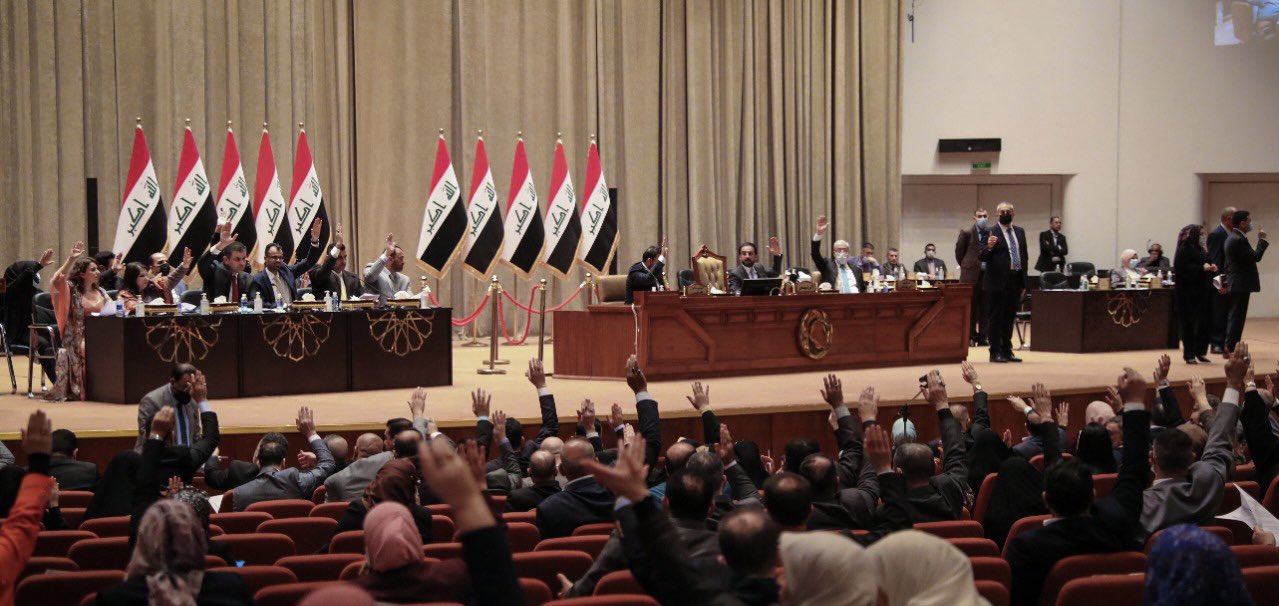Several members of Iraqi parliament and activists decry some articles of a law for Iraq's supreme federal court about its structure, mechanism of decision making and representation of Iraqi components.
Iraq's federal court is the supreme judicial power in the country, a body independent from the government and the Supreme Judicial Council, authorized to dissolve disputes between the legislative and executive authorities, between ministries, the legitimacy of legislations, constitutional issues and the disputes pending between federal and regional governments.
The new law is derived to replace deceased members of the court composed of 11 judges, the mechanism of nomination of new members.
Representatives of religious and ethnic minorities in Iraq are concerned over their seat in the federal court.
"This is a clear exclusion of the minorities. No one has the right to marginalize us as Christians or other minorities," said Bayda Khdhir al-Salman, Christian member of Iraqi parliament of Babylonian bloc.
"This is a clear exclusion of the minorities. No one has the right to marginalize us as Christians or other minorities,"
"MPs of the minorities registered a firm objection and we boycotted the session to affirm our stand because we cannot be marginalized in this way," she added.
Salman confirmed Turkmens, Ezidis, Christians and Shabak to boycott final voting session over federal court law. Article three of the law suggests a judge to represent the minorities in the court but not authorized to vote.
"This is unacceptable because we are one of the ancient components in Iraq and no one has the right to marginalize the Christians or the others.

Chirstians warmly welcomed Pope Francis's apostolic March visit to boost support for the oppressed minority. Photo by Vatican news.
In the last session by Iraqi parliament on March 8, MPs endorsed all the articles of federal court law except articles 2,3 and 12 due to objection of MPs representing the minorities.
The articles address the structure of the court, mechanism of decision making and the membership and role of Islamic Sharia jurists in the court, without any reference to any role of other religions.
The article regarding the religious jurists led to serious concerns by MPs of minorities and civil society advocates over the role of religion in the future of the country.
"The articles to b rephrased in a way that guarantees full rights of the minorities," Al-Slaman said.
The court is the highest judicial body for constitutional disagreements and has addressed over 2,000 cases since its foundation in 2005.
Civil society activists' criticize the proposal of religious figures to join the court as an attempt toward ethnic sectarianism because Islam is one of the main sources of legislation in Iraq but not the only source.
"This is an attempt to Islamize the state and eradicate civil identity which is completely rejected," said Zayid Al-Asad, civil society activist.
"This is an attempt to Islamize the state and eradicate civil identity which is completely rejected," said Zayid Al-Asad, civil society activist.
Article 12 of federal court law to be endorsed on March 15 session states 3/4 of to approve any law that it does not contradict islam.
"This is against civil state and diversity of Iraqi society and imposes Islamic rulings over all even the non Muslims," said Iman al-Barzinji, a law activist.
"First this is against plurality in Iraq and international charts that safeguards rights of minorities."
Iraqi constitution regulates relations between components of Iraqi society. Item two of the constitution states identity of Iraq's majority is Islam and gurantees all the religious rights of all for freedom of doctrine and religious rituals for Christians, Ezidis and Mandeans.





